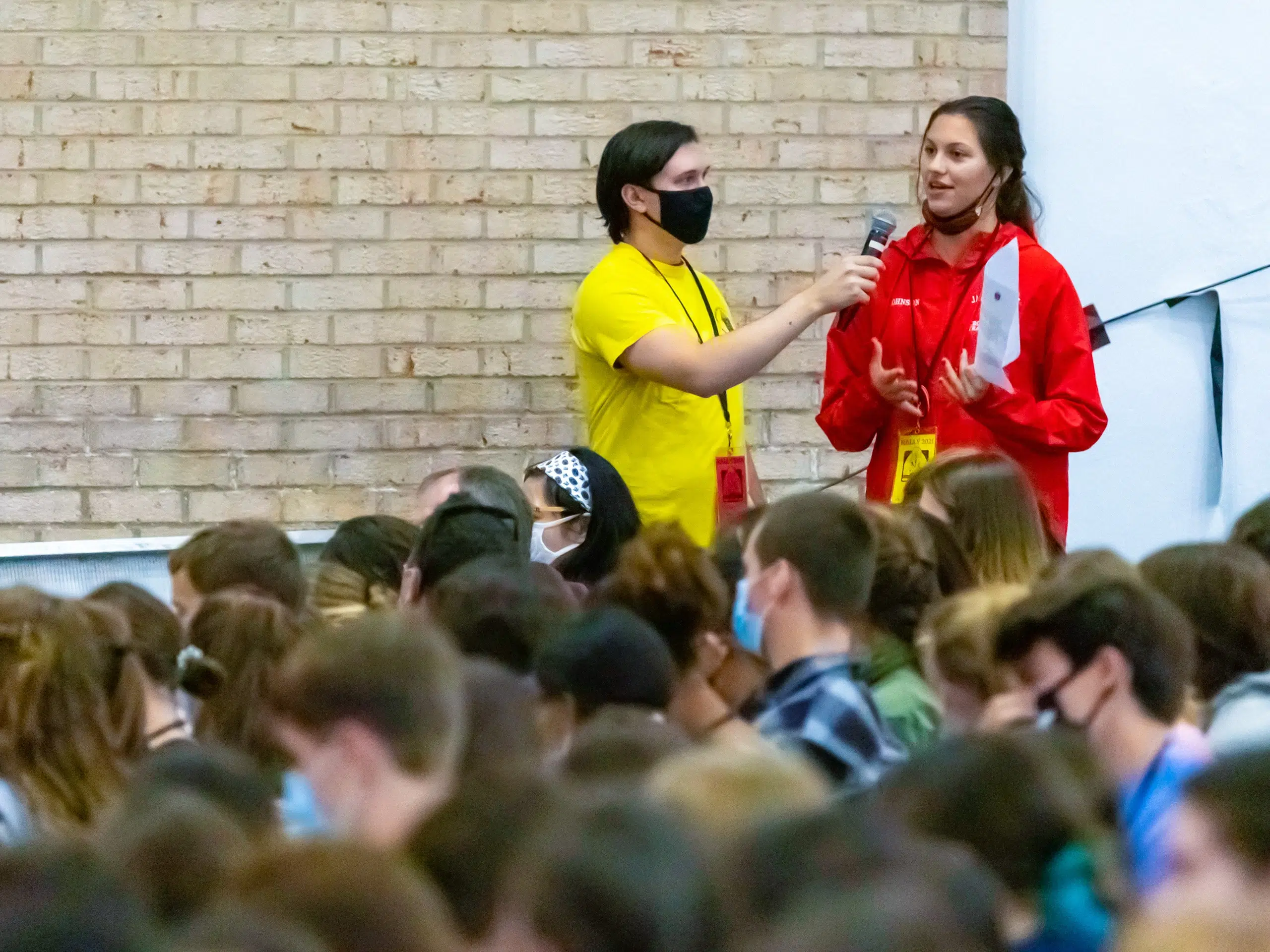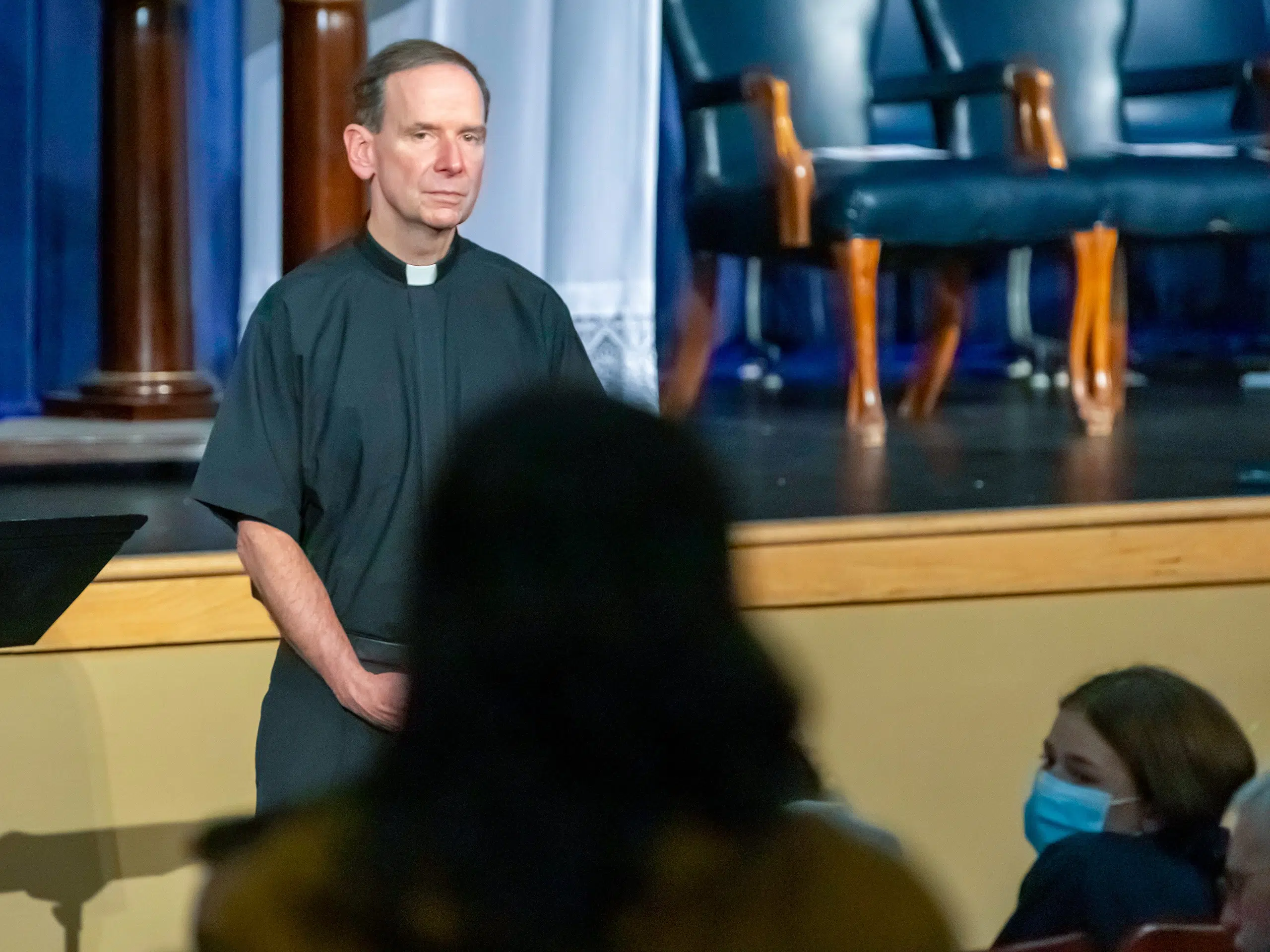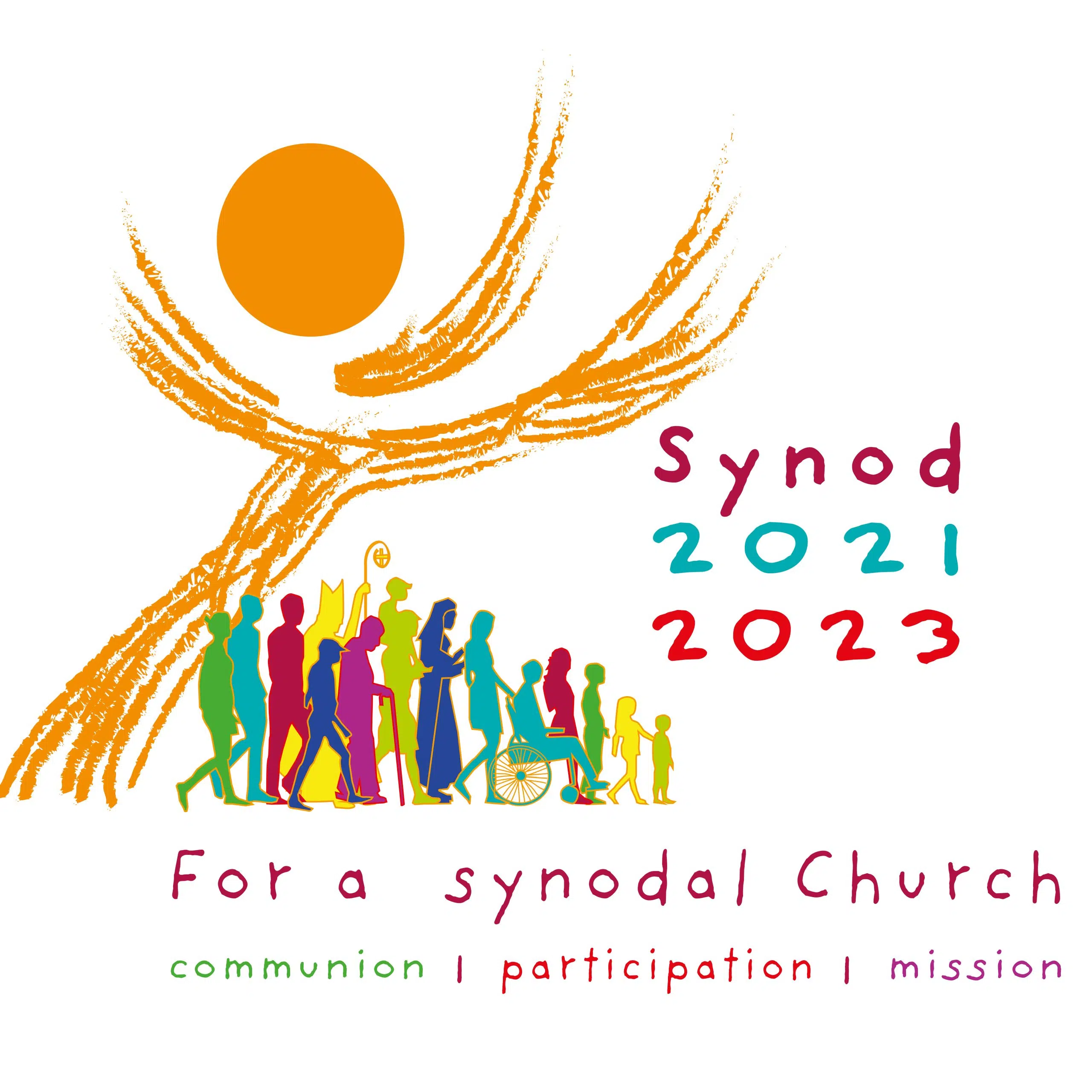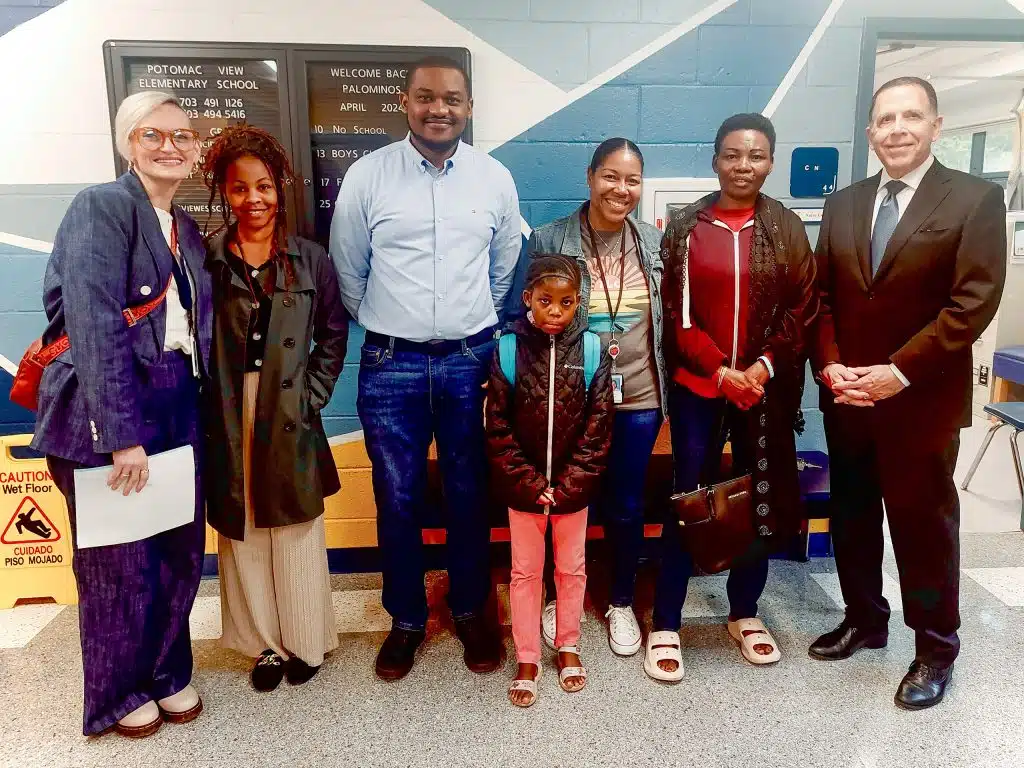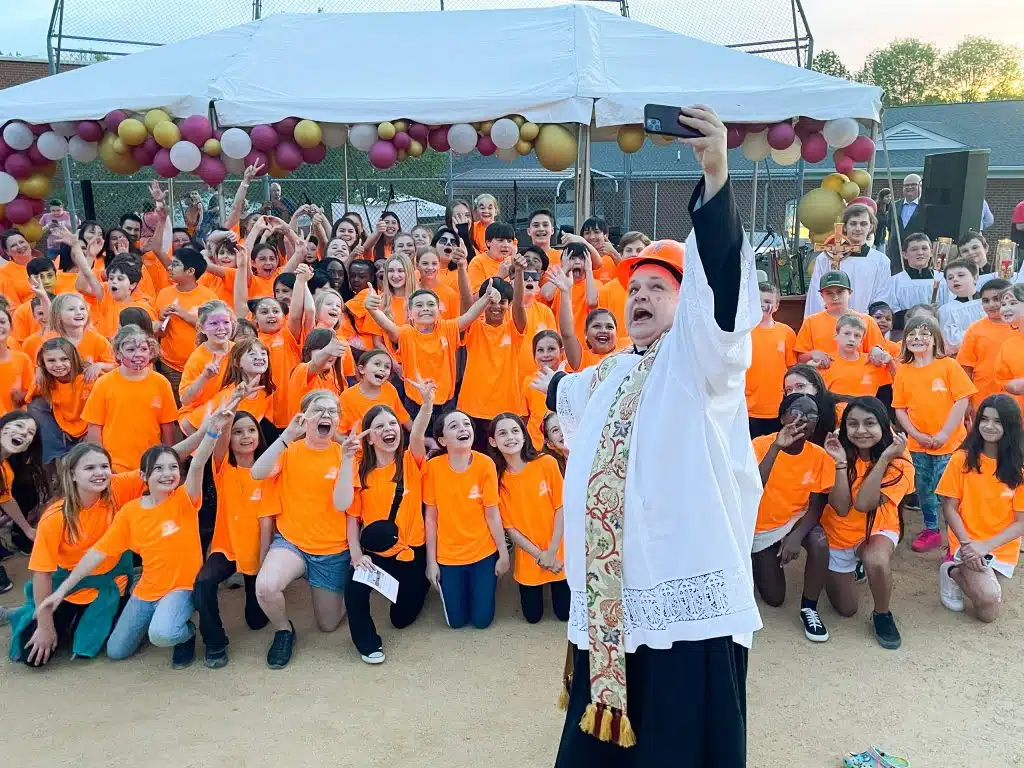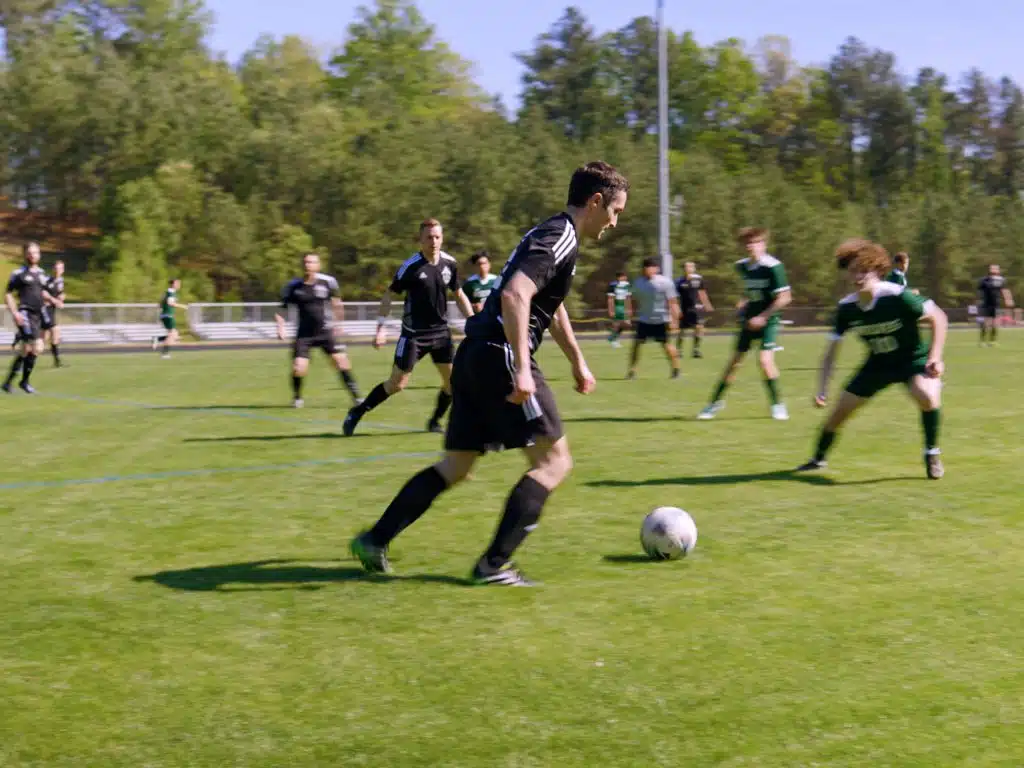More than 3,000 people participated in 145 listening sessions at parishes and schools this spring to hear the views of Catholics — both active and inactive — on how the church is journeying together to fulfill its mission in the world.
Bishop Michael F. Burbidge sent a 10-page summary report to the Vatican in late June on the listening sessions, which were part of preparations for the October 2023 Synod of Bishops in Rome, dubbed the “Synod on Synodality.” The term refers to an examination of how the church is listening and engaging in dialogue. Pope Francis asked every diocese to be involved.
The final report was published on the diocesan web page.
Topics raised at the sessions ranged from how parishes welcome newcomers to comments about faith formation, family life and youth. The report said people spoke of “many wonderful existing opportunities for fellowship,” from group Bible studies to men’s and women’s groups and prayer groups. At the same time, many people asserted that the church needed to do a better job in creating an atmosphere of community. For example, the faithful in parishes with both English and Spanish Masses noted “the feeling of a divided congregation due to cultural and language differences” and advocated for more efforts to bring people from diverse backgrounds together, the report said.
Many people at the sessions expressed a need for additional adult education, citing a lack of knowledge of church teachings among the laity. The report quoted one commenter who said “Catholics are unable to defend the faith when challenged by others because they have not been equipped.”
The report observed that young people “participated passionately in the listening sessions.” Some said the church “could do more to serve the youth, mentioning specifically the need for more support with mental health struggles, understanding the challenges of witnessing in a culture that does not accept the church and her teachings, and teaching the faith in a way that is personal, involving discussions which apply the faith to life.”
The report also said teens and young adults “repeatedly noted their struggles to keep and defend the faith in their schools and workplaces,” and requested resources to help them highlight the good works of the church.
Bishop Burbidge presided at 12 of the sessions, at parishes with a wide range of demographics: urban, suburban, rural, African American and predominantly Hispanic.
“People knew and understood that their voices were welcomed, appreciated and heard,” he told the Catholic Herald in an interview. “That fostered people sharing their insights, their stories, their recommendations and their hurts,” he added. “Usually when I’m going out to the parishes or institutions or campuses, I’m there preaching a homily or giving a talk or teaching. So to be in a position of just listening was a very unique experience — but I would say a very welcome one.”
Bishop Burbidge said that many of the comments in the listening sessions “reaffirmed the pillars that we have established as our strategic plan moving forward.” He noted that the strategic planning initiative began in the spring of 2021 and included 150 consultative sessions that resulted in identifying pastoral priorities, such as revitalizing evangelization and faith formation and fostering “one communion of many cultures.”
He said “the most prominent theme articulated in the listening sessions was the desire to cultivate a culture of welcome, and it clearly dovetails with the wish for ongoing synodality: the faithful simply think it is important to bring people together to reflect prayerfully, charitably and openly about the mission of the church.”
Father Donald J. Planty, pastor of St. Charles Borromeo Church in Arlington, agreed. “As the bishop’s delegate for the Diocesan Synodal Phase, I attended a number of the listening sessions,” he said. “The spirit of prayerful, respectful, charitable collaboration was palpable: everyone who participated clearly had the best interests of the church at heart, and (they) were passionate about how the church could better fulfill her mission.
“It was a blessing to see so many people from all walks of life come together with that goal in mind. Even when there were differences of emphases or opinions, people listened to one another with patience and consideration,” he said.
According to statistics included with the report, all 70 parishes in the diocese held at least one listening session, with 127 parish-based sessions in all. There were 97 in English, 27 in Spanish, two in Vietnamese and one in Korean. In addition to parish sessions, 18 others were held to hear from specific groups, including Catholic campus ministries, high schools, priests, newer priests, permanent deacons, women religious and several Catholic Charities ministries.
“I would assure the people that, in the spirit of what the Holy Father was asking, all voices were heard,” Bishop Burbidge said. “We listened on such a large and significant level the real challenge was limiting (the report) to the required 10 pages. In a sense, that’s probably a good challenge to have.”
Find out more
Read the synod report and a letter from Bishop Michael F. Burbidge: arlingtondiocese.org/synod
Explore the diocesan strategic plan: arlingtondiocese.org/strategy
